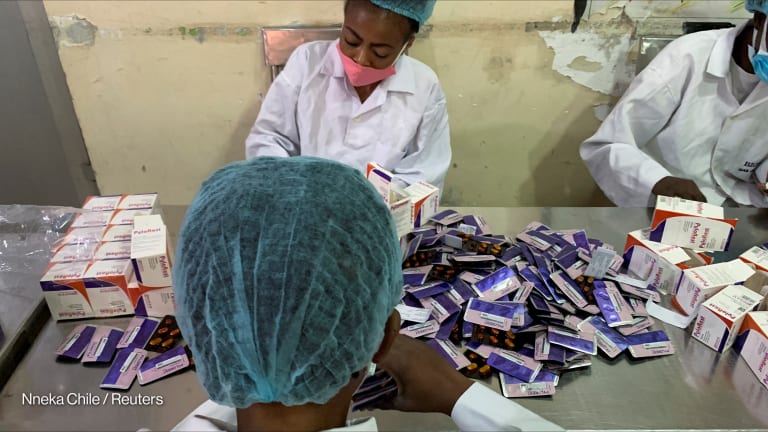
Today, innovation is not only growing in Africa but is critical for solving systemic challenges.
With innovation globally on the rise, Africa has seen local tech startups grow by 42% between 2015 and 2021 alone. In fact, Africa has the fastest-growing startup ecosystem in the world, receiving $4.5 billion in venture capital in 2023, notably only 35% of global venture funding, and is projected to reach $10 billion by 2056, according to Albert Muchanga, the African Union commissioner for economic development, trade, tourism, industry, and minerals. This enabling environment, aided by the new African Union Startup Policy Framework and Model Law, promises opportunities for innovators across sectors — including the health sector.
The number of health innovators, both startups and established firms, continues to grow, allowing us to discover new pathways to universal health coverage, or UHC, and address persistent health system challenges including inequitable access to care, health workforce shortages, and overburdened public health supply chains.
But despite growing opportunities for innovators in Africa, a question remains: How can these promising health care innovations be sustained?
Built to stay but not to last
Worldwide around 90% of health startups fail, and 60% of them fail within the first five years. Health innovators in Africa looking to sell their product or service to public sector customers experience several challenges related to poor infrastructure, confusing or restrictive government policies and regulations, and establishing effective public-private partnerships. While these challenges are real and must be addressed (see a recent publication by HealthTech Hub Africa offering solutions) overcoming these “environmental barriers” is no guarantee of success — many health innovators fail because they don’t understand the customer context and needs.
In 2021, Tom Eisenmann, a professor at the Harvard Business School, authored the bestselling book “Why Startups Fail: A New Roadmap for Entrepreneurial Success” where he notes startups often fail because they do not understand a customer’s needs prior to developing and launching an innovation. He explains that innovators want to move fast, bringing their product or service to market before engaging with potential customers or assessing comparable existing solutions. This lack of understanding can affect the innovation’s suitability and force innovators back to the drawing board.

At VillageReach, we could not agree more. As the world edges closer to 2030, we need to do things differently and harness innovations to achieve UHC. That is why we advise innovators on how to navigate the complexities of public health ecosystems in Africa. Governments are the stewards of national health systems and make key decisions on how to allocate the often-scarce resources needed to adopt and integrate innovations. Driving sustainable innovation often means adapting or developing products and services with the government customer in mind. This means health innovators must work closely with governments and their partners from the beginning to align their offerings with government priorities, budgets, structures, and policies.
Sustainable collaboration
Since 2017 VillageReach has been advising innovators such as Africa Medical Supplies Platform, Swoop Aero, Orange Côte d’Ivoire, enovpharm, Skyports Drone Services and HealthTech Hub Africa. Our advisory services for innovators include:
• Market development services, which provide market analysis, customer segmentation and targeting, as well as a go-to-market strategy and plan.
• Product/service customization services, which help innovators adapt existing products or services to meet public health sector needs in a specific country.
• Product/service evaluation services, which help innovators and their customers assess the effectiveness of product or service implementation by developing evaluation protocols, conducting evaluations, and identifying potential product or service improvements.
For over 20 years, VillageReach has worked with governments and the private sector to deliver health products, services, and information to under-reached communities. We want to make primary health care systems more responsive to communities — and helping innovators integrate their services into public health systems is one way we will do this.
We offer health innovators a practical and flexible approach, an in-depth understanding of private and public sector operations and constraints, and a strong record of successful collaboration between public and private sectors. Our experience allows us to support innovators in both developing scalable and sustainable business models and fostering long-term public-private collaboration. Based on our expertise we developed advisory services now available to both innovators and their customers — namely governments, donors and technical partners.
VillageReach’s vision is a world where each person has the health care needed to thrive, and we know health innovators are critical to this vision. Come work with us to bridge the gap between innovators and the public health sector — moving closer to making this vision a reality.
Contact us at innovator.TA@villagereach.org








